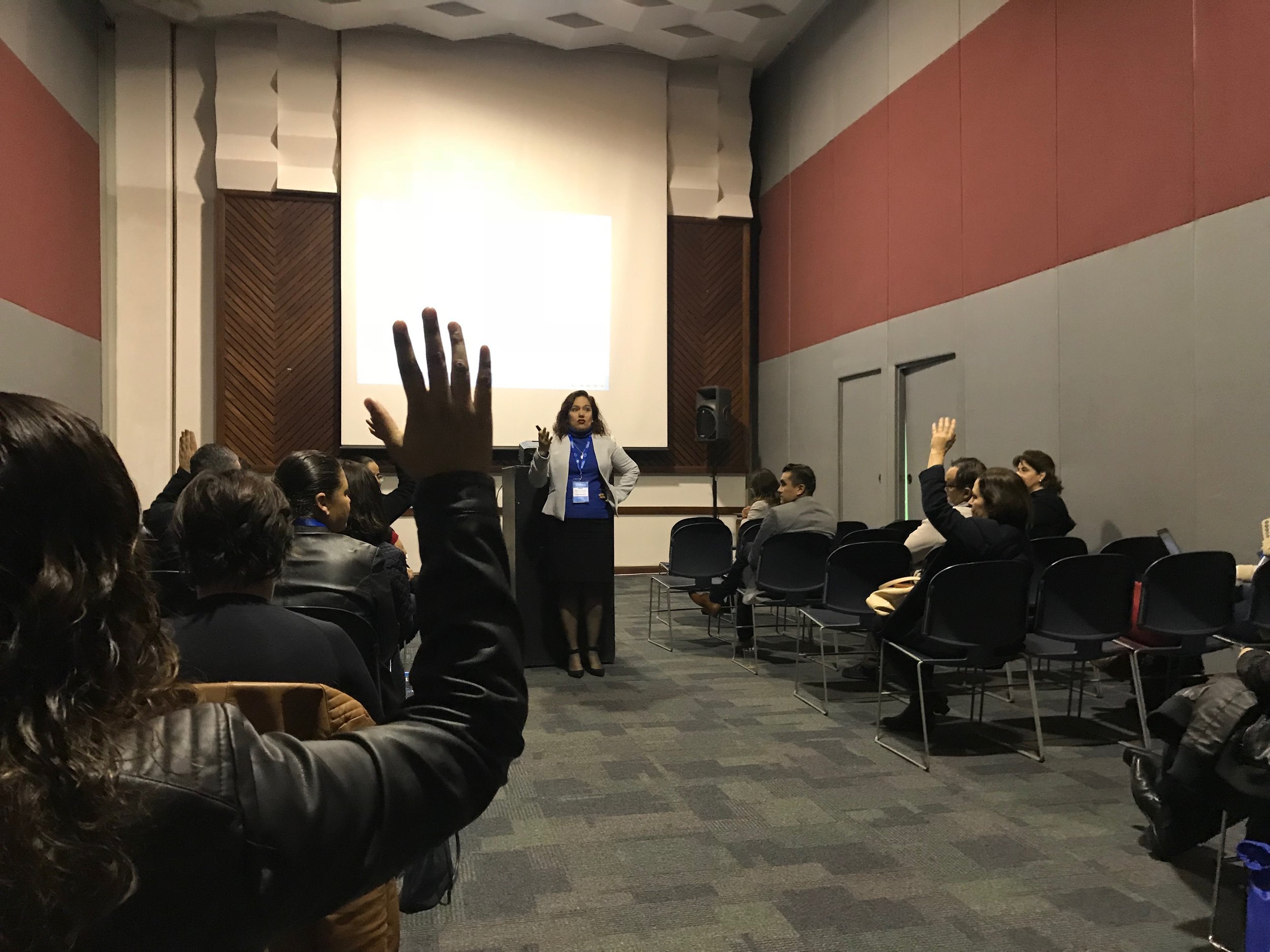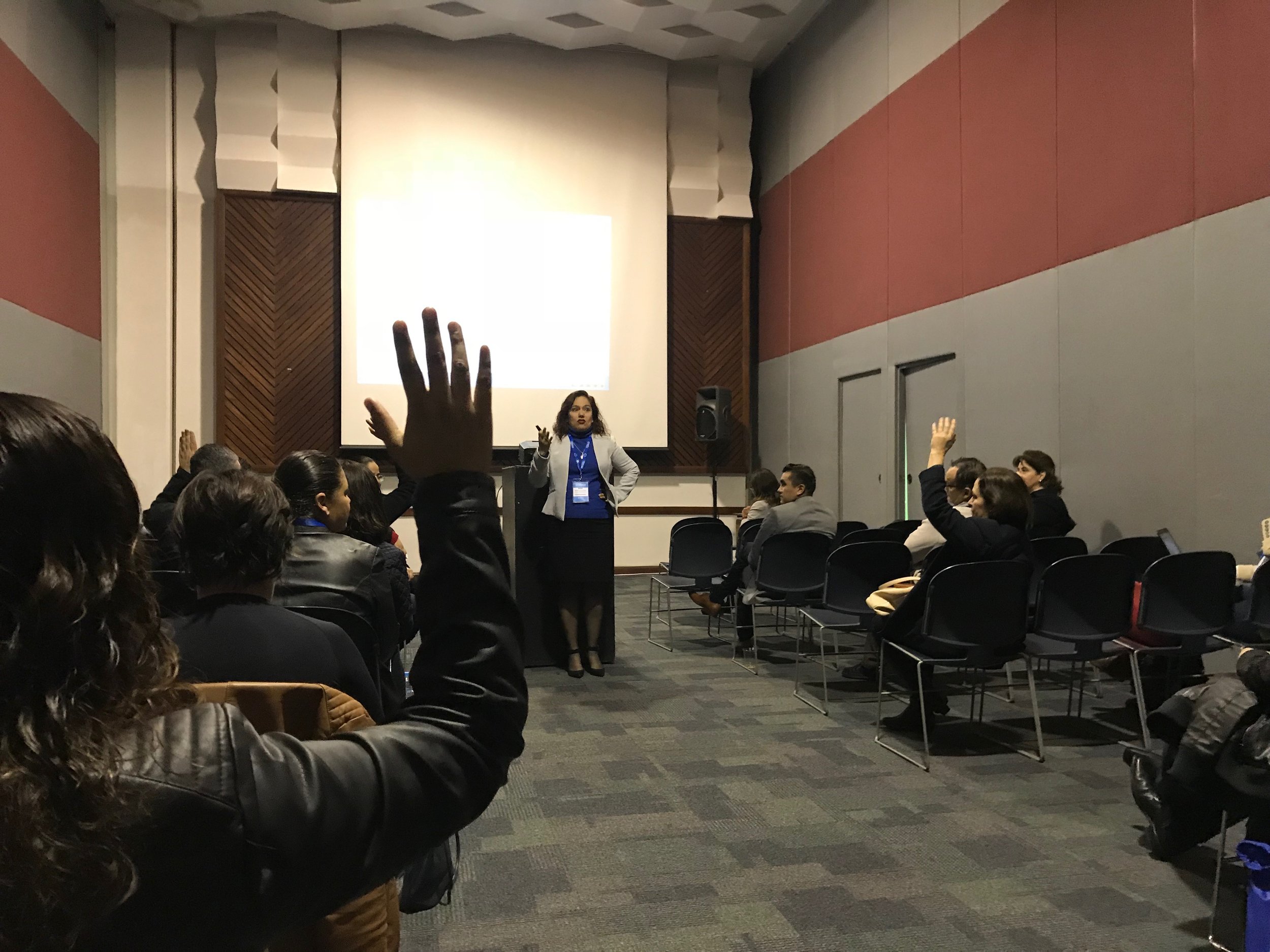Open access to educational resources is becoming a trend in universities and governments, stated experts at the keynote Open Access: Challenges and Opportunities in Education.
Dr. María Soledad Ramírez Montoya, Associate Dean of the Graduate School of Humanities and Education of Tecnológico de Monterrey, and José Vladimir Burgos Aguilar, Director of Open Innovation, agreed that the world is opening to free knowledge.
At the 48th Research and Development Conference of Tecnológico de Monterrey, Burgos pointed out that the costs of databases and books limit access to scientific and academic information.
“The most important expense for libraries is the subscription to databases, such as SCOPUS. Also, the cost of textbooks has increased exponentially,” he said.
data-animation-override>
“Open access seeks to implement actions that favor free and unrestricted access to scientific and academic literature, encompassing articles published in journals, learning objects, images, data, audiovisual material, software, etc.”
More free scientific information is available everyday: there are more than 1,200 million works licensed with Creative Commons. “We are seeing a lot of knowledge that was typically reserved that now is open,” said Burgos.
Among the most important open access initiatives worldwide are:
- Directory of Open Access Repositories (DOAR)
- Registry of Open Access Repositories (ROAR)
- Directory of Open Access Journals (DOAJ)
- Directory of Open Access Books (DOAB)
data-animation-override>
“A repository is a data provider and can be defined as a central place where data is stored and preserved for the purpose of security or further access.”
To contribute to the open access movement, Tecnológico de Monterrey announced on Wednesday that it is working on its open access policy, which is going to be available soon.
For her part, Dr. Ramírez Montoya pointed out the challenges of open access:
For institutions:
- Changes in their model and practices in a society dominated by the knowledge economy
- Promote an open access culture
- Earn high positions in rankings to get more attraction of funds and students
For researchers:
- Choosing appropriate ways to give visibility and relevance to scientific production
- Generate a digital identity and an institutional scientific reputation
- Adaptation of traditional research practices with open access policies
For students
- Learn to integrate in their profession a digital culture with ethics
- Create a scientific reputation
- Integrate new innovative practices that favor open access to knowledge
The attendees said that a challenge for open access is the lack of information about its advantages. “There is very little information available to students on the matter”, expressed a participant.
Regarding the opportunities and advantages for society, Ramírez highlighted better educational outcomes by having free and open access to knowledge.
For the educational community, the advantage is that learning is not limited to a specific space. For science, it allows access to the results of scientific research financed with public funds, and the creation of a network of national and international experts from different disciplines.
This article from Observatory of the Institute for the Future of Education may be shared under the terms of the license CC BY-NC-SA 4.0 
)
)


)